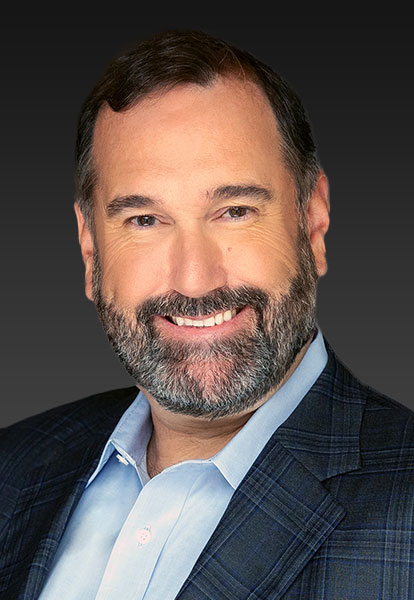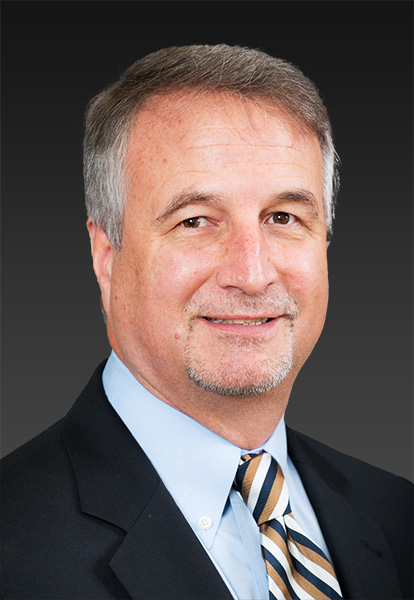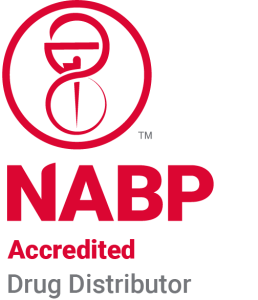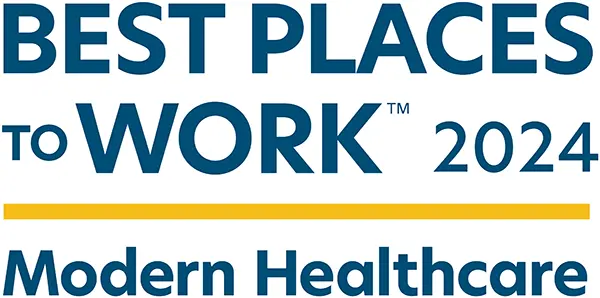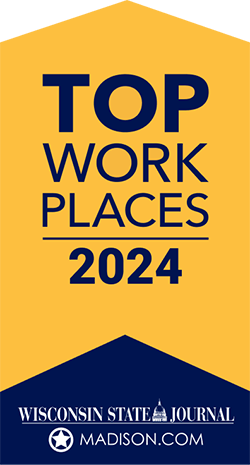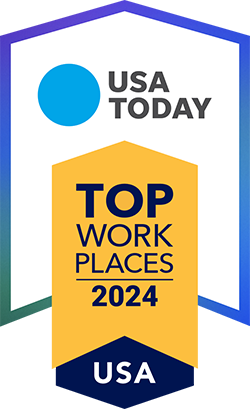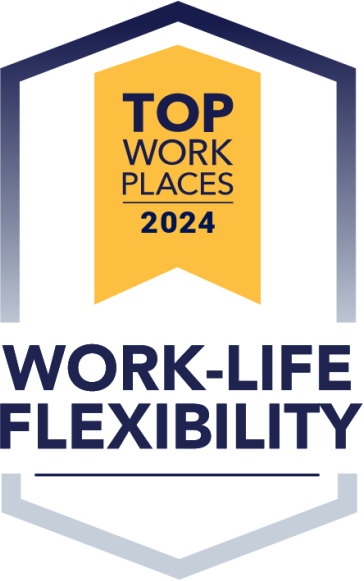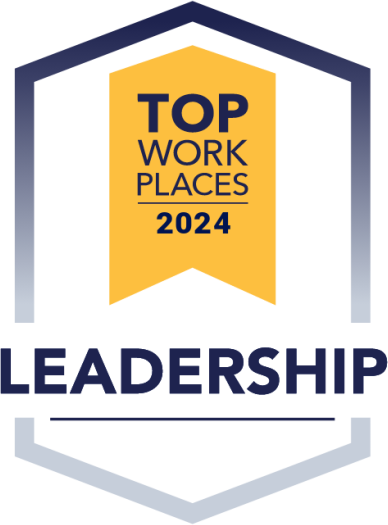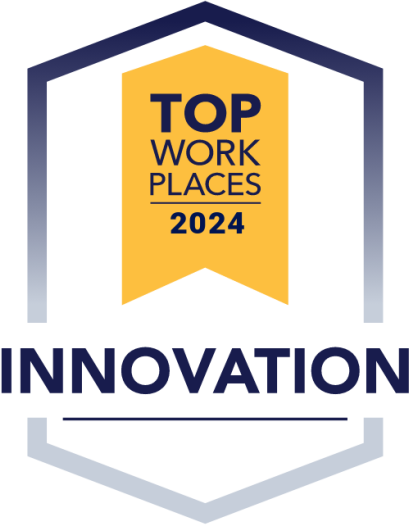IPC proudly hosted Todd Eury and the Pharmacy Podcast Network in our booth at the 2023 NCPA Annual Convention in Orlando this October. Take a listen to this third edition of the Recap including interviews with powerhouse industry leaders such as:
- Marc Essensa – President & CEO, IPC
- Mark Kinney – SVP Government Relations, IPC
- Steve Maki – President Main Pharmacy Association, Owner of Spruce Mountain Pharmacy
- Doug Hoey – CEO at NCPA
The NCPA 2023 Annual Convention is an important moment each year to gain insights and key strategies to bring to your pharmacy.
This podcast is part of a series.
- Listen to episode one.
- Listen to episode two.
PPN Episode 3 Transcript from NCPA 2023 Annual Convention
Announcer 1 (00:06):
You are listening to the Pharmacy Podcast Network.
Todd Eury (00:14):
Hey, this is Todd Eury CEO of the Pharmacy Podcast Network. We’re here live in Orlando, Florida at the National Community Pharmacists Association’s 2023 Coverage Show (NCPA 2023 Annual Convention). We can’t wait for you to hear these interviews.
Announcer 2 (00:30):
Welcome to the Pharmacy Podcast Network’s Press coverage of the National Community Pharmacy Association’s Annual Conference. Hundreds of pharmacists, pharmacy owners, technicians, and students attended the 2023 NCPA annual Convention at the Orange County Convention Center in Orlando between October 14th and October 17th, thank you to the Independent Pharmacy Cooperative, known as IPC for being our media support sponsor for this three-part series. And now here’s our host, CEO and founder of the PPN Todd Eury.
Todd Eury (01:03):
We’re at the NCPA 2023 (NCPA 2023 Annual Convention) and guess who I ran into? Marc Essensa. Welcome to the show.
Marc Essensa (01:09):
Thank you Todd. Thank you for having me. It’s always great to see you and thank you very much for all you do with community pharmacy in our nation and making sure that we’re a strong, prosperous group within this industry. So it’s always, always great to see you and we’re proud to have you here in our booth at NCPA 2023 Annual Convention.
Todd Eury (01:24):
We are here in the IPC booth. This is so much fun. We’re surrounded by people that are making their way through the expo hall and there’s a lot of energy here. There’s a lot of excitement, and I want to say this, there’s a lot of purposefulness in this conference. We have a lot of people who are finally connecting the dots to things that we’ve been talking about for five years ago, including an upcoming division of digital health tools that IPC is developing. I want to shift to you as someone who’s really having to see so many facets of the Independent Pharmacy Cooperative, not only from a leadership perspective, but you’re listening to the members and the owners, which is 2000, 3000, 4,000 big. There’s a lot of pressure on your shoulders. How do you handle that kind of pressure as a leader?
Marc Essensa (02:16):
Well, I think it really comes down to the fact that we’re a member-owned cooperative. So when it is the pharmacists and the store owners calling the office meeting me in the floor or whatever avenue they have to communicate with me as being myself as well as a staff, as a servant leader to what it is that they need and what they’re asking for, that’s what a cooperative is supposed to do. And what I’m heartened by is that
Marc Essensa (02:41)
The model is changing significantly for independent pharmacy with the declining reimbursements, the DIR cliff that’s coming up, and just the nuances of how after covid all these state organizations working towards provider status and this patchwork of laws that we have, how do we prepare ourselves as an industry for the future? I know you’ve heard me in previous podcasts when we talked about getting independent pharmacy future-ready. What’s most important of all that is that we need to see where the needs as well as the opportunities for independent pharmacy will be in the future. And that’s when the members, all that pressure comes down to is we have a plan and what our plan is is to be able to work through either our digital platform, which is at the end of the day, a construct of a platform that can also be added onto in the future, but also taking advantage of immediate opportunities with remote patient monitoring at-home care testing, tele-pharmacy light, as we call it, and Teladoc. So having a plan for the future is really the way to disarm some of the emotion that’s coming in our marketplace. Not to minimize it, but to understand that we understand that it’s out there. The members have some opportunities that are coming up and that we’re working diligently through their efforts and our efforts to future-ready independent pharmacy.
Todd Eury (04:01):
So there’s listeners out there, Mark, who are not members of your group, not members of the IPC team, and they’re listening and they’re wondering, so what’s really the difference between one group to the next and any group that helps community independent pharmacy? I’m a fan of; however, there’s something very special when you constantly have input coming from your member base that are in the grassroots actually doing the work, actually seeing how their services are impacting patients. What do you say to those pharmacy owners who are very worried about the coming DIR Fee apocalypse as well as kind of making some pivots and some changes? What’s the top three things per se that they can think about as pharmacy owners to really measure the value that they could get from this group?
Marc Essensa (04:53):
I think one of the major things is, is that we’re being a cooperative or non-equity group. So everything that we generate from our relationship as our primary wholesaler with McKesson, all those admin fees that they pay to us in order to manage the programs that we have, plus we have a major warehouse in Madison Wisconsin, a hundred percent of those funds go back to the members. So there’s actually no cost to joining our group. It’s a matter of participating, voting for board memberships, participating in our board and being engaged as a cooperative, what it really truly supposed to be, which is a grassroots indication of what’s going on in the various areas of the nation and educating us as to what needs to get done. The other thing is, traditionally in the past, GPOs are, as the name suggests, a group purchasing organization. It’s an aggregator of volume.
Marc Essensa (05:42)
And I think everybody who’s negotiated a contract with their primary wholesaler over the last several years realizes that it’s coming to a low watermark where there’s just not the margins to be given in renegotiating contracts, aggregation of volume doesn’t necessarily matter. It’s mixed of between your generics and your brand and your specialty. So what you really need to do is have yourself in a pharmacy services organization, which is that we like to call ourselves now versus necessarily a GPO, but a pharmacy services corporation that are putting out new programs and services that’ll bring new patients and new revenue streams into the mix, give you the tools that you need. Because a lot of times our members are specifically getting, they’ll have a DSCSC vendor that’ll come in and offer a solution, then they’ll have a reverse logistics solution come in, and then they’ll have a pharmacy management solution come in and then they’ll have you name it.
Marc Essensa (06:32)
What we’re trying to do at IPC as a pharmacy service organization is to partner with the best of the best that are out there, do the vetting for our members, but then consolidate that into a digestible form because our members at the end of the day, don’t have the time to make the decisions, take the meetings and do all the research. So what we’re trying to do is put that all together form in one platform, which is what the digital health is going to be as we’re working on today, but also with the 2.0, the 3.0, and the 4.0. Those are in the next coming years where we have manufacturer services such as patient assistance programs, which we’re currently working on, having a solution for some type of long-term care, have some type of solution for specialty at independent retail, which has always been an issue.
Marc Essensa (07:16)
And as we get to more and more specialty drugs, we’ll get squeezed less and less out of the prescription base. So those are the types of things we’re working on. So as an independent owner, I would suggest get yourself with a GPO or a group or a buying group that really has the future thought of what they’re doing, plus also the resources. That’s the one benefit of IPC, our warehouse and our relationship with McKesson, which is long-standing, really allows us to have the resources to invest in the programs that we have to make the membership stronger.
Todd Eury (07:47):
Mark, thank you so much for participating in the post show. We’re always excited to work with IPC. If you’d like some more information on IPC, please go to IPCRX.com. Mark. Thank you so much.
Marc Essensa (07:58):
Thank you very much for having me.
Todd Eury (08:06):
We are here at the IPC booth (at NCPA 2023 Annual Convention). I think it’s booth number 9 35. I’m here with Mark Kinney. Mark, welcome to the show.
Mark Kinney (08:17):
Yeah, thanks, Todd. Thanks for having me.
Todd Eury (08:19):
You’re very welcome. So you have something to share with us. It’s an update it follow up to some initiatives with United Health. Would you kind of elaborate on that and tell us your update?
Mark Kinney (08:30):
Yeah, absolutely. We’re really excited about an initiative. We’re working with the United Health, it’s in Michigan. They’re managed Medicaid program and better taking care of patients and making sure that they’re getting the medications they need. It’s not on the medical billing side, but it’s on equip, which most of our pharmacies are already familiar with. So it’s not anything new for them to submit claims on this, but we’re trying to impact four different categories that are pain points for United Health to make sure that they get their patients taken care of. And from my understanding is that United Health has used phone banks with nurses and therapists and physicians in the past with limited success. What they wanted to do is to see if independent pharmacies in those local communities, which many times have had relationships with those patients, generationally coming in the pharmacy, having those discussions face-to-face with people that they trust, would that be able to move the needle?
Mark Kinney (09:46)
And so we’re in our second year now. We’ve had some really good results after the first year. In fact, IPC pharmacies ended up based upon the adherence measures, actually outperformed the chains in other states that they’re doing similar projects in. So we’re really happy with the efforts of our pharmacies. We got a really good turnout participation. We had 80 pharmacies sign up. Over 40 of those pharmacies have continued through the program submitting claims. And what makes this really unique Todd is we’re not just getting paid on the outcome measurement, but we’re also getting paid by the intervention or the counseling of that patient. So that’s the unique piece of this. And it is unique to independent pharmacy and exclusive independent pharmacy in the Michigan program. But if you look at the RASA diabetes, cholesterol, statin use with patients with diabetes, these are the measurements that we’re trying to really make an impact on.
Mark Kinney (10:58)
And again, at the end of last year, we showed that there was a value there. And UnitedHealth has been, I believe, really happy with those results and continue the program for this year. For next year, we’re looking at actually layering in some additional opportunities, including A-one-C testing, point of care at the pharmacy, and pharmacies getting paid for that and managing that diabetic patient. And what we hope to do is to take these results and the model and then scale it across the country. And we’re looking at other states such as Florida and Texas maybe, but as pharmacies, community pharmacies can prove their worth worth. I think other payers as well are going to be very interested in doing a similar program.
Todd Eury (11:49):
Yeah. The question that I had, which I think you almost answered, was how do we spread this throughout the nation? So if we’re having this kind of a success in Michigan, you’re saying that you were already kind of targeting other states to push this out through?
Mark Kinney (12:03):
We have, and I am kind of glad that we started a year ago in one state because it was new to us, quite frankly. It was new to the pharmacies, but now we have that experience and the ability to demonstrate that we can move the needle on adherence and outcomes. And again, I have to go back and get paid for that counseling, and that’s what pharmacies have not done before. I think everyone feels that there’s been programs out there that look at adherence outcomes, but this is unique again, in the sense that when that patient comes into your pharmacy, you do the counseling and you get paid for that event. It’s as simple as going into equip. That patient is identified as an eligible patient and you literally only have to click one other box, submit the claim and get paid. So it’s a pretty simple process. We’re also looking at potentially going down the medical billing route with them as well in another program. We’ve had those discussions, and so that’ll be new to us as well. But we’re looking forward to the challenge.
Todd Eury (13:17):
Mark Kinney. IPC, thank you so much for being part of the NCPA 2023 Annual Convention post show.
Mark Kinney (13:22):
Thanks, Todd.
Todd Eury (13:29):
Guess who I ran into here at the NCPA 2023 Annual Convention post show. I get to see people coming down the hallway. We get texts from each other. You are the new state, you’re the new state association president for Maine. But you’re a pharmacy owner too. Tell our listeners about your new appointment and also I want to hear more about you as a pharmacy owner as well, Steve Maki.
Steve Maki (13:57):
Thank you, Todd. I appreciate that. My name’s Steve Mackie. I am the president of the Maine Pharmacy Association. I am also the proud owner of Spruce Mountain Pharmacy and lovely Jay, Maine, in the Western Mountains of Maine. I’ve owned the pharmacy since 2009, built it up from scratch, and we moved into our great brand new facility just before Covid hit in 2019 with compounding lab, private vaccine room medication, adherence, packaging. What else do we do? We do everything. I mean Med sync, hey, let’s not forget about that. So in my newest role, I don’t have anything else to do. In all my free time running my pharmacy, I was asked politely to consider running for president, and by gosh, I did one. And here I am president of the Maine Pharmacy Association. So super excited about that role. Super excited about bringing independent pharmacy voice back to the Maine Pharmacy Association. We’ve had a great diversity of different leadership and different opportunities for academia and corporate leadership, but I think it’s time to hear the voice back of the independent pharmacy. We’ve got a lot of strong independent pharmacies in the state of Maine. I’d like to give them some voice, some opportunities to rebrand themselves, regrow their business, reconnect with communities and say something, the independent pharmacy is where it’s at for great customer service, great continuity of care, we’re here for you and where can we grow and move forward? Yep.
Todd Eury (15:27):
I think of transitions of care. That’s a big term that we’ve been hearing about. And the state associations have a very unique position within that concept and kind of spell it out to you and ask you questions about that. And that is if you had somebody in your state association that worked at a health system pharmacy, a hospital system pharmacy, and now you have this influx of oversight and ideas that are coming out of community pharmacy owners, transitions of care now can be talked about at the boardroom to really make programs better and tighter so that we don’t lose patients. And then of course, adherence just starts falling away. Oh, exactly. Can you talk a little bit about transitions of care?
Steve Maki (16:09):
Transitions of care is definitely going to be a challenge, especially in a rural state like Maine, making sure that we get med lists, make sure we get patients in front of us, make sure that they have their medication with them. I need to see what they have at home. What are they coming out of the hospital with? How do we help them have better healthy outcomes with what we have? I think at Spruce Mountain Pharmacy, we’re in great position to help that with our patients, especially with our compliance packaging system. That gives us a great tool to make sure that patients are taking the medication on time appropriately and to give us the ability to monitor that because if they’re not taking the medication appropriately, we’re going to know because they’re not calling in their refills on time or they’re telling us, oh no, I still have medication left. That gives us the ability to get that intervention in there to prevent those bounce back patients winding back up into the healthcare system in deeper trouble or having poor outcomes.
Todd Eury (17:05):
Excellent, excellent. So we want to hear more from you as you move forward in your tenure and being president of the Maine Pharmacists Association give our love and our support to the entire association from the Pharmacy Podcast Network. We’re excited that you’re here at the NCPA 2023 Annual Convention. Before we let you go, why is it important to come to organizational meetings like the NCPA? Every year
Steve Maki (17:30):
I’ve been, this is my fourth NCPA meeting, it is a energetic, great opportunity to network, learn, see some superstars that are doing great things across this country that are leading edge for independent pharmacies, independent thinkers. Where do we think outside of the box? How can we do pharmacy different? How can we do it better? How can we make outcomes that give patients better quality of life? And I think that’s where NCPA is hitting its mark and giving us the opportunities to have those tools in front of us and it’ll bring those home to our home states and then integrate that in and start doing best practices.
Todd Eury (18:09):
Excellent. Excellent. Thank you so much for being part of the post show, Steve, and we can’t wait to talk to you again soon.
Steve Maki (18:15):
Awesome. Todd, thank you very much. Have a great rest of the show.
Todd Eury (18:23):
This was one of the most amazing gatherings of community pharmacy owners here at the NCPA 2023 Annual Convention. Closing the show now we have Doug Hoey. Welcome to the show.
Doug Hoey (18:33):
Thanks, Todd, glad to be here. And you’re right, it’s been a fantastic show. There’s been lots of energy and no one’s sticking their head in the sand that there are plenty of challenges in the retail pharmacy marketplace, but there’s also so many opportunities and the successful pharmacy owners are here at the NCPA 2023 Annual Convention and they are sharing, networking, talking about how they are succeeding in this challenging market and also seeing some opportunities. We see chain pharmacies closing, and with those closures, we hope that there will be some additional opportunities for other pharmacies.
Todd Eury (19:10):
So we want to start right out of the gate with you. There was a lawsuit that you spoke on here, but listeners that may not have attended the conference, I want you to bring us up to date of how that’s progressing.
Doug Hoey (19:22):
So at the conference, we talked about our legal strategy to recoup the DIR fees that we believe have been stolen, taken from independent pharmacies. So the first piece of the legal strategy, and this is not an NCPA lawsuit, but it’s one that the three law firms that worked with the independent pharmacy owner from Iowa who filed the class action lawsuit. NCPA has been educating and talking with those law firms for quite some time, but the class action lawsuit to recoup DIR fees that was filed a couple of weeks ago, and pharmacies don’t have to do anything. They are in the suit unless they happen to own a large PBM, then they would be excluded. That’s the one exclusion. But they are in the class action lawsuit. There’s nothing that they need to do. But at the conference, we had those same law firms on our stage talking to the membership, and then with individual meetings afterward talking about something called the trust LLC.
Doug Hoey (20:27)
And what the trust is is pharmacies need to make their individual decision whether or not to join the trust. If they joined the trust, they would be asked to assign their claims. Basically what that would mean is that if they believe they have a claim against a PBM, and a claim would be that the PBM has taken stolen illegally, taken DIR fees from them, if they believe that claim, they would assign that claim to the trust. And the idea is we believe that there will be thousands of pharmacies that choose to join the trust. The trust will then arbitrate take those cases to arbitration with the PBM.
Todd Eury (21:14):
So when I’m listening to you, I’m hearing that you have to start somewhere. You have to be involved in something. We’ve been encouraging pharmacy owners to join their state pharmacy associations reengage, become more active. I just got done talking with Steve Maki, just elected president of Maine Pharmacy Association, and he even made the point, if you’re not active, if you’re not part of it, then you shouldn’t be complaining unless you’re active in something. And when I think of the NCPA, it’s the same thing that if you’re a community pharmacy owner, you have to get involved. I want you to speak to the membership, and I also want you to speak to those listeners out there who may not be members.
Doug Hoey (21:55):
Yeah, you do have to be involved. We would want you to be involved with NCPA, but a pharmacy owner who is passive, who just hopes the business walks in their door and hopes that AWP minus plus is going to be the profit center that it was years and years ago. I guess I’d be concerned about their future viability. You do have to be active. You do have to be your own advocate, and you do have to speak up fifty-one percent of all of the payments for prescriptions on average, according to the new Digest. The new NCPA Digest that just came out are Medicaid and Medicare. So you have to be an advocate. NCPA is the voice of the community pharmacist, period. So if you’re a community pharmacist and you’re not part of NCPA, your voice isn’t being heard, one of the ways your voice would be heard would be if you choose to be in the trust LLC for NCPA members, if they choose to be in the trust LLC, there’s no cost for nonmembers. It’s a thousand dollars per location to be in the trust LLC if that’s what they choose to do. So that’s one prime example where it makes sense. If you want to slug back against the PBMs in court, you need to be an NCPA member. And if you need to make that decision, if you want to join the trust LLC.
Todd Eury (23:15):
All right. I’m going to shift gears to innovation. I love innovation. I’ve been in technology. That’s how I entered pharmacy was technology. So anything that is future or tech or anything excites me. Something that is exciting me that is coming from NCPA is Ronna Hauser. She is a powerhouse and she’s teaching community pharmacies how to grow their long-term care business. That’s just one example of some of the innovation from NCPA. What are some of the innovations that are exciting you?
Doug Hoey (23:42):
Well, you mentioned Ronna Hauser. Ronna Hauser is our senior Vice President of Pharmacy and Policies Affairs, and she’s a pharmacist and one of the many talented members we have on the NCPA team. In innovation, we NCPA helped to start CPESN. When we NCPA’s mantra is changing the pharmacy payment model. People are going to get sick of hearing me say changing the pharmacy payment model, but that is exactly what we have to do to make independent pharmacy viable and allow us to care for the patients that we serve. CPESN has all kinds of different innovative business models where it’s working with payers to use the talents of networks, of local pharmacies to improve patient care and get payment for those services. There was an example I used in my speech this morning from the Iowa network, the Iowa CPESN Network, where in that network they helped reduce repeat inpatient admissions by 30%, 30% reduction of patients going back to the hospital.
Doug Hoey (24:52)
I mean, that’s good on so many levels. They were paid on average over $8,000 per pharmacy for the services they provide to reduce those inpatient admissions. It’s what we’ve been talking about in pharmacy for decades that let us practice to the top of our license and pay us for those services, pay us for that value that we provide. And it’s happening. And some of that innovation is happening in CPESN. The other place innovation is happening is you mentioned the convention on our exhibit hall floor. I mean, we’ve got over 200 exhibitors. They are exhibitors. The only reason those exhibitors exist is to help independent pharmacy owners. Yes, they’re trying to sell something to independent pharmacy owners, no doubt. But if they don’t have value, if their products and services don’t have value, they’re not going to be around. So they are there to help independent pharmacy owners. And some of the, whether it’s technology services, products that are on the show floor, that’s some really striking innovation that can help with the efficiencies that are needed, especially today, especially when pharmacies need efficiencies with the workforce. With labor being so tight and labor expenses going up due to inflation. Anytime you can create more efficiencies in your pharmacy, it can save the pharmacy a lot of money. So that’s another area where I’m excited about innovation.
Todd Eury (26:21):
We’re looking forward to twenty-twenty-four. Where’s NCPA twenty-twenty-four taking place?
Doug Hoey (26:26):
In Columbus, Ohio. So this is the first time we’ve ever been to Columbus. I’m excited about it. When we signed the contract almost five years ago, I was thinking Columbus, gosh, it’s not necessarily a travel destination, but it’s centrally located. It’s got a good airport as far as people flying in, people can drive in. The other thing is way back, not way back, but in twenty-fourteen, we were in Austin, Texas, and Austin was growing, but Austin has exploded. And I compare Austin A. Little bit to Columbus. I mean, they’re both kind of medium-sized cities, huge college campuses, both state capitals. And they have a thriving social restaurant bar scene right by the convention center. So I think people who come to Columbus, they’re going to be delighted with not only the meeting itself, but also just with the social aspect of it.
Todd Eury (27:26):
I’m excited within driving distance for me in Pittsburgh. So we’re going to have a ton of people driving in from Pennsylvania, West Virginia, and of course in Indiana and coming to that central point. And Cardinal Health is in Dublin, so it’s in their backyard as well. And I know the exact shopping area that you’re talking about, we take our children down there and there’s a Lego store there. So if you’re listening and you have kids, there will be something for your families to do because there’s a lot of shopping and restaurant areas that have been developed there.
Doug Hoey (27:56):
Yeah, No, I mean, it’s been a few years since I’ve been there, but there’s young kid stuff and older kid stuff too, all in the area. So there’s something for everyone. And like I said, the facility itself is actually very nice too. So I think Columbus is going to be one of those hidden gems that people are really going to like.
Todd Eury (28:17):
Doug, we are proud to cover the NCPA year after year. Thank you for having us here as press and media, and if there’s anything we can do with you and amplifying your message in 2024, please reach out to us now. I
Doug Hoey (28:30):
Appreciate that Todd 2024 is going to be an exciting year for independent pharmacy. I mean, I know that sounds cliche. I probably said that in 2023, but it really is, the payment model is changing, and in some respects it’s changing for the better. In other respects, it could change for the worst, and that’s one area where NCPA is working. You mentioned Ronna. Ronna and her team are working very diligently with the regulators in government to try to make sure that new changes to how pharmacies are paid, especially with the top 10 drugs being negotiated by the government and Medicare, it’s really going to have some dramatic changes for pharmacy payment. So it’s an exciting time, it’s a dynamic time, and the folks who are advocating for themselves and willing to try things new, they’re going to be very successful over the next decade.
Todd Eury (29:28):
Thank you, Doug. It’s great having you.
Doug Hoey (29:30):
Appreciate it, Todd. Take care.
